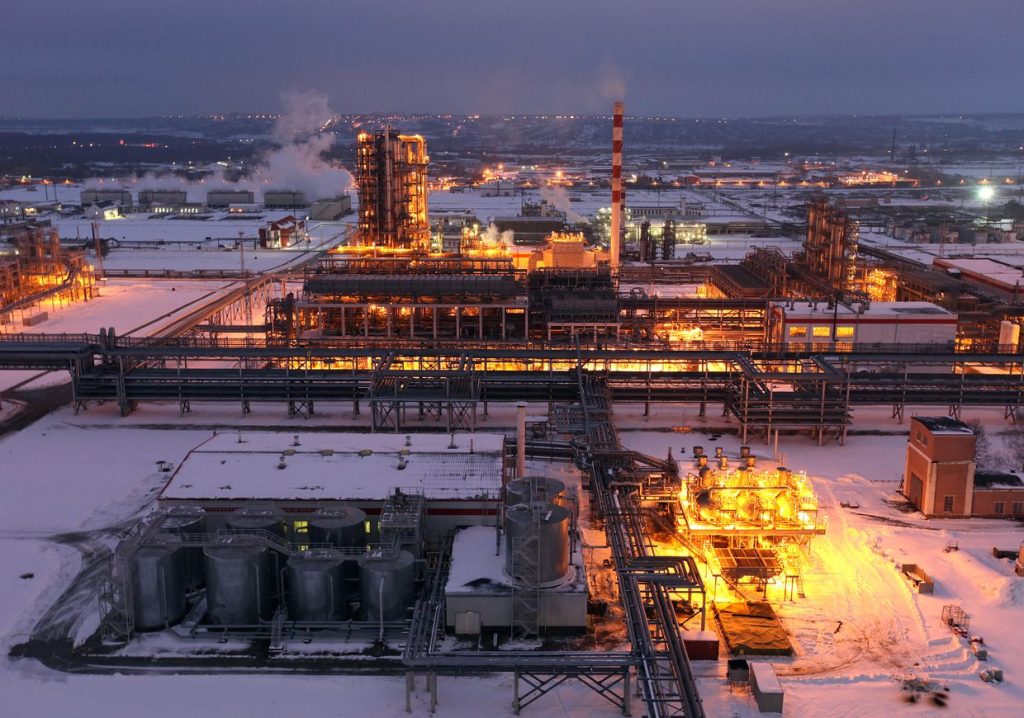Russian oil refineries, prompting Moscow to increase imports of gasoline from Belarus to offset potential shortages caused by the attacks. This move comes after Ukraine launched a series of drone strikes targeting Russian oil facilities. As a result, Russia has been forced to look for alternative sources of fuel, leading to an uptick in imports from Belarus. The country purchased 3,000 metric tons of gasoline from Belarus in the first half of March, a significant increase from previous months. Discussions are reportedly ongoing between Russian and Belarusian authorities and oil companies regarding further imports to address the supply chain disruptions caused by the attacks on Russian refineries.
The drone strikes carried out by Ukrainian forces represent a strategic effort to disrupt Russia’s oil industry and weaken Moscow’s capabilities. By targeting key refineries, Ukraine aims to hinder Russia’s ability to maintain its military operations in the region. These attacks have led to the shutdown of several Russian refineries, impacting the country’s oil production capacity. As a result, Russia has had to resort to importing gasoline from Belarus to meet its domestic demand. The ongoing conflict between Ukraine and Russia continues to escalate, with both sides employing tactics aimed at gaining a strategic advantage in the region.
The conflict between Ukraine and Russia poses a significant challenge for both countries, as they seek to secure their respective interests in the region. Russia’s reliance on Ukrainian oil refineries has been disrupted by the recent drone attacks, forcing Moscow to explore alternative sources of fuel. Belarus has emerged as a key supplier of gasoline to Russia amid the supply chain disruptions caused by the attacks. The escalating tensions between Ukraine and Russia highlight the volatile nature of the region and the complex geopolitical dynamics at play. Both countries are vying for control and influence, with each side employing tactics to gain an upper hand in the conflict.
The drone strikes conducted by Ukrainian forces underscore the evolving nature of modern warfare, where unmanned aerial vehicles are increasingly being used as a strategic tool. By targeting Russian oil refineries, Ukraine has managed to inflict economic damage on Moscow and weaken its military capabilities. The use of drones in warfare has become a common tactic among various armed forces, allowing for precision strikes and reduced risk to human life. The effectiveness of these drone attacks in disrupting Russia’s oil industry highlights the significant role that technology plays in shaping contemporary conflicts and military strategies.
Overall, the increase in gasoline imports from Belarus is a direct response to the disruptions caused by the drone attacks on Russian oil refineries. Both Russia and Belarus are working to address the challenges posed by the supply chain disruptions and ensure that domestic demand for fuel is met. The ongoing conflict between Ukraine and Russia continues to escalate, with both sides employing a range of tactics to gain a strategic advantage in the region. The use of drones in warfare has reshaped the dynamics of modern conflicts, with unmanned aerial vehicles playing an increasingly important role in military strategies. As the situation unfolds, the region faces continued uncertainty and instability due to the overlapping interests and actions of various stakeholders involved in the conflict.


